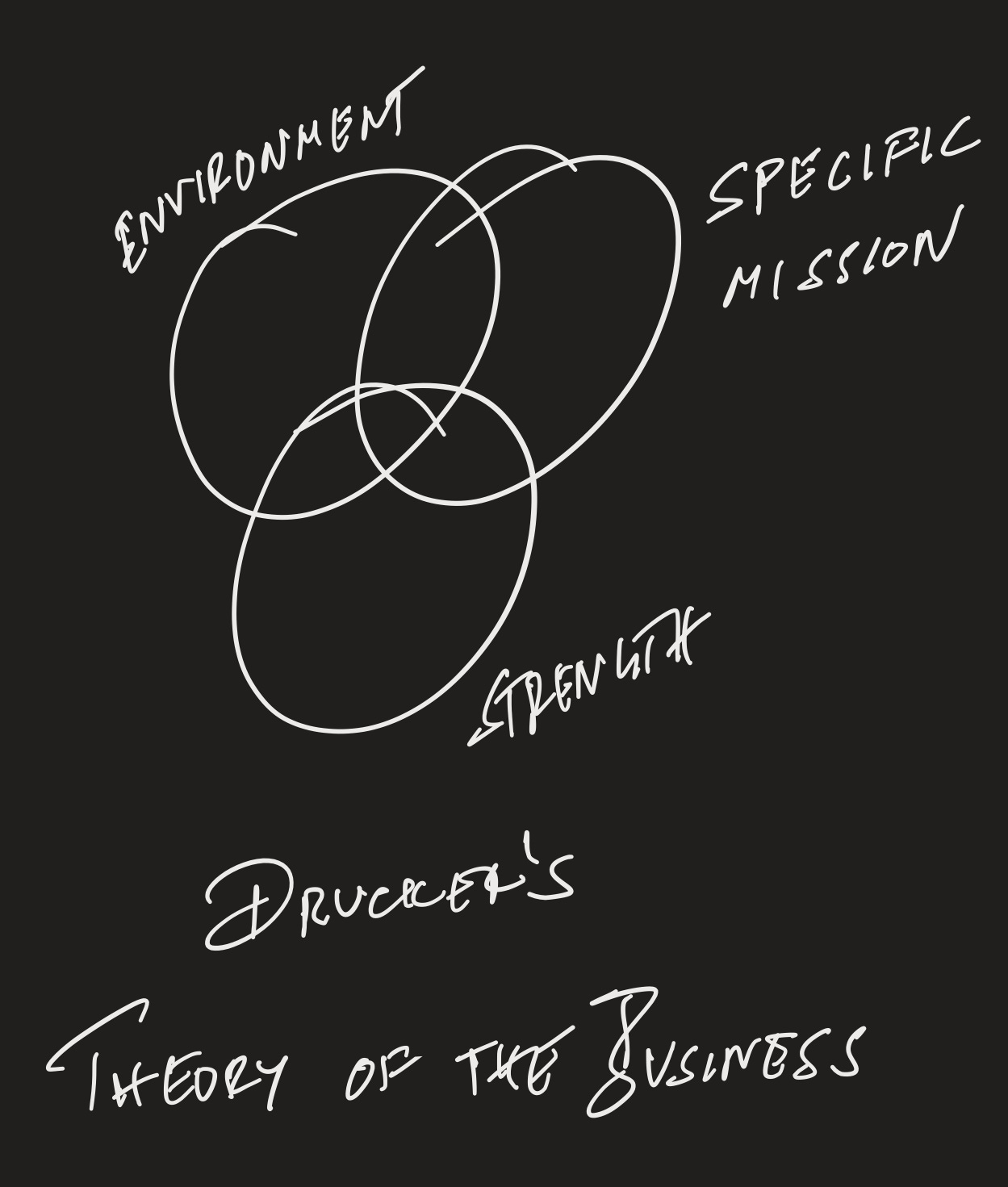Steve Ballmer's iPhone Blunder: Why Even Good Strategies Fail When Assumptions Are Outdated
Thanks for an overwhelming response to this newsletter on LinkedIn and Substack. We have more than 700 subscribers in 2 weeks. I am thrilled and humbled. I will strive to explore the intersection of strategy, innovation, design and the human within all of this with a touch of Drucker.
In the first post, we discussed the idea of what a Theory of the Business means, and we looked at the changing fortunes of Apple and Microsoft through these lenses. If you have not read that, it’s worth doing that.
Drucker says in his HBR article,
Every organization, whether a business or not, has a theory of the business. Indeed, a valid theory that is clear, consistent, and focused is extraordinarily powerful.
I want to highlight two things. One, it’s not just for business. It is valid for a NFP, social enterprise, a governmental organisation. Two, a valid theory. We will cover these in the future.
In the first post, we discussed how Microsoft went from success to a non-success, especially in the iPod and iPhone world. What explains this?
More from Drucker.
Every big, successful company throughout history, when confronted with such a surprise, has refused to accept it. “It’s a stupid fad and will be gone in three years,” said the CEO of Zeiss upon seeing the new Kodak Brownie in 1888, when the German company was as dominant in the world photographic market as IBM would be in the computer market a century later.
Let’s listen to the famous response of the then CEO of Steve Ballmer on the iPhone. Here is the YouTube video. And here is a summary from Google Gemini of that video.
Ballmer downplays the threat of the iPhone, pointing out its high price point and lack of a keyboard, which he suggests 'makes it not a very good email machine' compared to Microsoft's Windows Mobile devices. Ballmer highlights the success of Microsoft's Zune, stating that they captured a significant portion of the high-end market despite Apple's strong position. He expresses confidence that Microsoft can compete effectively.
Was Ballmer wrong. Actually not. It looks awful in retrospect. But think about this. Windows was everywhere. Consumers had small Nokia phones. Windows phones were in the market. Why would anyone spend $500 on a phone? From the point of view of Microsoft, the business world is what mattered and consumers followed what worked in the business world.
Drucker might have called Ballmer's response a classic case of focusing on the known (Windows in the business world) rather than embracing the 'future that has already happened’.
Apple’s core strength was its design chops and relentless focus on the human. The emotional consumer. Microsoft’s core strength was the focus on the business and the rational decision maker sitting there.
Going back to Drucker’s article :
The root cause of nearly every one of these crises is not that things are being done poorly. It is not even that the wrong things are being done. Indeed, in most cases, the right things are being done—but fruitlessly.
In the 1990s, Apple did all the same things as in the 2000s, but the market was the business world. And that was dominated by Windows. In the 2000s, as Jobs waited for new opportunities, the iPod was the perfect product was consumers. And then the iPhone was super consumer focussed.
Microsoft continued to be good at business, but as the iPhone launch took place, the environment started to change. For one, Apple creating a multi-touch phone changed the technology space. 3G communications started to come. Consumers cared about design and UX. Email and the internet was not just a business use case. It was for everyone. Google was dominating search.
As the environment changed — assumptions about “society and its structure, the market, the customer, and technology” — strengths or core competencies of Microsoft “no longer fit reality”. This explains the paradox.
On the other hand, the beautiful iMac designed by Jony Ive in the late 1990s was a cult hit but was not bought by the business buyer. This same capability mattered with the iPod and iPhone because consumers bought them.
Why core competencies matter? That comes next.
“The real voyage of discovery consists not in seeking new landscapes, but in having new eyes.” ― Marcel Proust
Readers Pointers: What are the changes in your environment? How is society and societal values changing, what are the economic changes, and finally, how are consumers and technology changing? What is the future that has already happened for you?


